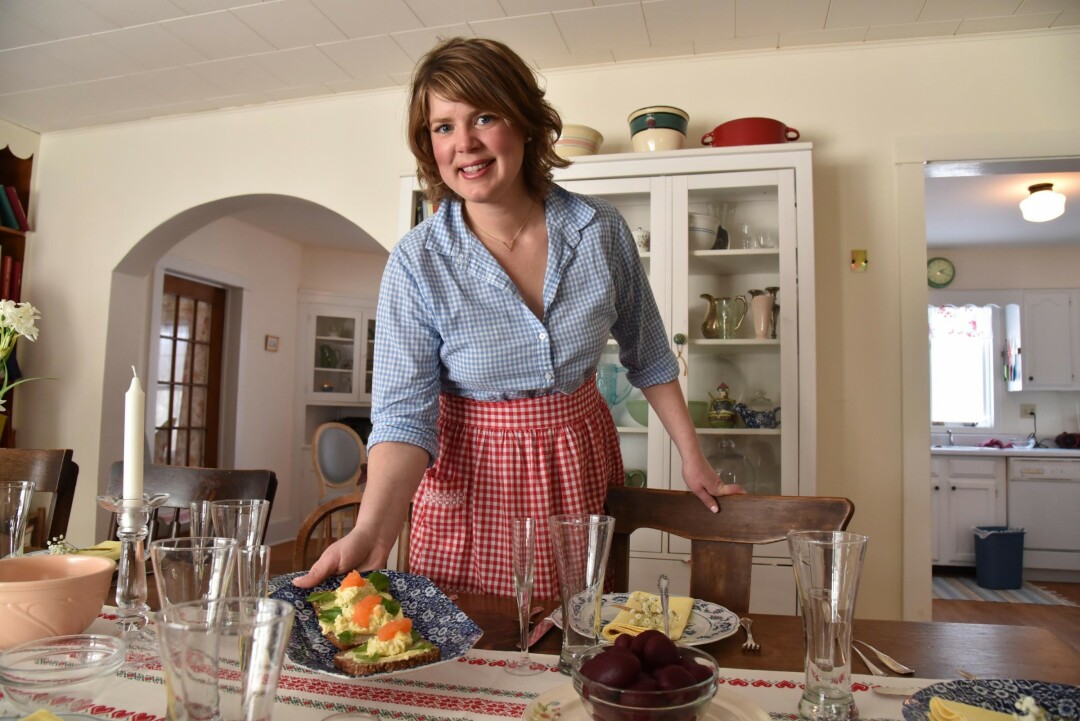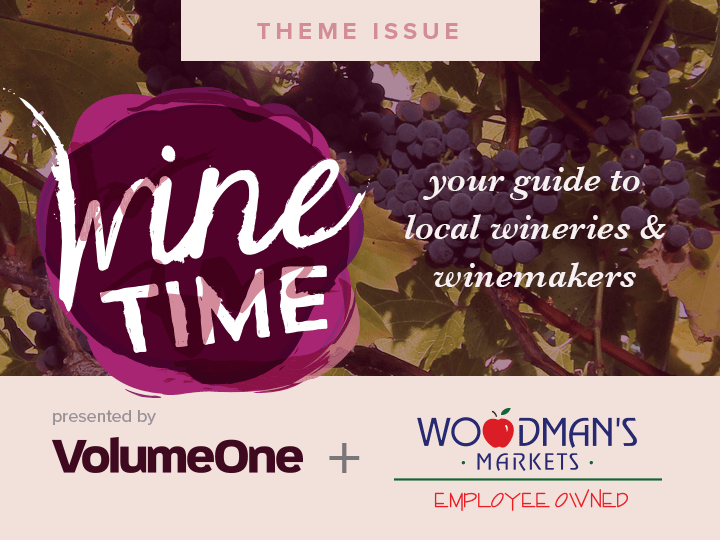Cooking With Wine
tips from local chefs about how to successfully create something delicious
Barbara Arnold, photos by Mark Aumann

I learned all things wine from Julietta, my landlady in Spain and a dead ringer for Sophia Loren. Unlocking her liquor cabinet in her formal dining room, she showed me how to open and pour, which glass to use, and how to sip or swirl with my tongue, never swig aperitifs (Campari vermouth or Sandeman sherry), table and fine wines, dessert wines (Madeira or Port) and sparkling Spanish wines (Cava). Sometimes, I could barely stand after our lessons. A superb cook, she did not share recipes.
Inga Witscher, host of Around the Farm Table and a passionate gardener and cook, and Anthony Chavez, local chef and owner of Live Great Food Catering and author of Kitchen Bitch: A Naïve Introduction to a Professional Kitchen (2011), are willing to answer a few of our questions about cooking with wine.
Volume One: Why are some people intimidated to use wine in recipes?
Anthony Chavez: I believe there is a level of intimidation due to a perception of value in the wine. When the dollars a person spends on the wine is coupled with the confidence said person does or does not have in the kitchen; sometimes the weight of that preconceived anxiety leads to opting out of cooking the wine and simply drinking it instead. Cooking with wine is an adventure all on its own and is truly effortless and should not be worked up into some big “to-do.” The outcome of the recipe becomes that much deeper and more complex adding different notes and layers to your flavors, creating a depth that often could not be achieved without wine.
Volume One: What does wine add to a recipe? Will the alcohol content get cooked out for those who might be concerned about getting drunk from cooking with wine?
Inga Witscher: When you add wine to a recipe, you let it cook for a while, which reduces the wine and (concentrates) the flavors. The alcohol will cook out of the dish.
Volume One: Can you use cheap wine or table wine as opposed to a higher quality, higher cost wine when cooking?
Anthony Chavez: In my experience, the cheaper the better! Cheap wines are still wine, and in most cases when classifying a wine, it is based on traits the wine carries. Expensive wines are well balanced, aged, developed, and often described in foreign languages using words like Vintage, Barrel-Aged, Terrior, Private Reserve, and with dates that trickle through history. Cheap wine still has all the characteristics . . . even if it was bottled last year, it makes your lips pucker and can be found at every gas station in a 100-mile radius. Typically, it’s the cheaper wines that will really carry the notes that you are looking for in recipes through the entire cooking process. (FYI: Boone’s Farm is not wine.) No wine is off limits for cooking wine. If you have a corked bottle that loses its appeal, that could be a cooking wine. If you have a half bottle that you and your book club could not finish up, that could be cooking wine, too.
Inga Witscher: "It’s always been suggested to me to use the same quality of wine you would drink to cook with. That being said, I’m the kind of person who buys their wine at the same store I buy my chicken feed. One stop shopping!"


